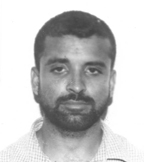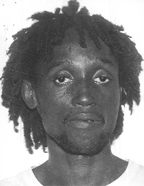The Guyana Police Force yesterday announced that it has set up a special investigative team to “enquire into the alleged murders which surfaced during the court hearing for drug dealer Shaheed ‘Roger’ Khan.”
The force’s announcement comes three days after Khan was sentenced in a Brooklyn Federal Court to fifteen years in prison for drug trafficking, witness tampering and a 16-year-old gun running charge.


It is the first major step taken by local law enforcement to address the issue of the alleged crimes Khan committed in Guyana while operating his drug empire. The drug trafficker had publicly stated that he worked along with the security forces in fighting crime during the reign of the prison escapees who wreaked havoc in a period which saw the country facing one of its worse crime situations in recent history.
The unit will be based at Criminal Investigation Department (CID) Headquarters, Eve Leary, the police said. In a statement yesterday the GPF called “on all individuals, organisations or groups who may have information or vital evidence concerning these alleged murders involving the Fineman gang, Roger Khan’s gang or any other gang or individuals who may be involved to come forward and provide whatever information or evidence that may be available.”
It named the force’s Crime Chief, Assistant Commissioner Seelall Persaud, as the person to contact or persons can also dial telephone numbers; 225-2227, 226-6978 or 225-8196.
The police announcement comes after calls by many, more recently by the opposition parties, for an investigation to be conducted into Khan’s activities in Guyana. The calls had been made even as he was being tried in the US for exporting large quantities of cocaine into that country from these shores.
The opposition parties had specifically asked that an enquiry be conducted into the many dimensions of Khan’s activities, moreso into his alleged links to the Government.
While President Bharrat Jagdeo has shot down suggestions of a Commission of Inquiry, he has said that the police force should investigate any crimes that may have been committed by Khan. During the run up to his guilty plea in March, US prosecutors had named Khan as the head of the violent ‘Phantom Squad’ it said was responsible for the deaths of many persons. Activist/television talk show host Ronald Waddell and Agricola resident Donald Allison were identified by prosecutors as persons killed by Khan’s squad.
Last Friday in sentencing Khan, US Federal Judge Dora Irizarry had said that while no sentence would make right the atrocities that may have been committed by him; 15 years in a US jail meant that justice had been served.
Observers last evening said that persons would be skeptical of approaching the police force and divulging any information they may have for fear of reprisals. Some also said persons still do not trust members of the force and may not want to reveal sensitive information. Witness protection is also expected to be a major concern of persons who may potentially want to provide information.
After Khan’s guilty plea, Police Commis-sioner Henry Greene had said the police would now await requested information from the US to move forward their investigation of Khan.
In March after the drug trafficker had pleaded guilty, Crime Chief Persaud had said that the force could have only launched an investigation into Khan’s activities if it is presented with information and evidence. He had acknowledged however, that Khan was one of the drug players who the police believed was very big and who operated in Guyana but added that “he was only one of them”.
When he was asked if the force would have launched an investigation should Khan return to Guyana after he served his sentence, Persaud had said that he does not know what the future holds, adding if the US presents Guyana with information on Khan’s activities then “we would do an investigation…or if anyone comes forward and tells us ‘well listen, I know this happen’… yes we would do an investigation.”
Persaud had said he was only interested in information and transcripts that are presented to the force by United States officials and once they explain that crimes occurred in Guyana there would certainly be an investigation.
It was Persaud in November 2007, who said that since Khan’s capture, execution-style killings in Guyana had dropped considerably from 43 in 2006 to 12 in 2007. He said at the time, that Khan had a group of men who worked with him while he was here, but since he had been locked up the men had all gone in different directions. “We believe that Mr Khan was involved in narcotics trafficking and since his arrest we have seen a fragmentation of his gang instead of them being one place they are all over the place.”
Khan was charged with conspiring to import cocaine into the US over a five-year period from January 2001 to March 2006. The US government had said he was the leader of a cocaine trafficking organisation based in Georgetown. It also asserted that he was able to import huge amounts of cocaine into Guyana, and then oversee exportation to the US and elsewhere.
The US government had charged that a significant amount of the cocaine distributed by Khan went to the Eastern District of New York for further distribution. As an example, it cited a Guyanese drug trafficking organisation based in Queens, New York, which it said was supplied by Khan. The Queens organisation was said to have distributed hundreds of kilos of cocaine in a two-month period during the spring of 2003.
Khan had resided in the US and committed crimes in both Maryland and Vermont. On January 6, 1992 he was convicted in Montgomery County for breaking and entering and theft. While he was on probation for that offence, he was arrested in Burlington, Vermont for receiving and possessing three firearms while being a convicted felon. He was subsequently indicted and was released on bail in November 1993. He promised to obey all conditions of his release but fled to Guyana in 1994 in order to avoid prosecution and as a result there is an outstanding warrant for him, for violating the conditions of his partial release and an outstanding warrant in Rockville, Maryland for violating the conditions of his probation.
His troubles deepened last year when he and his former lawyers Robert Simels and Arianne Irving were hauled before the courts and charged with conspiracy to tamper with witnesses relating to the drug trial. Simels was accused of making an alleged US$1,000 payout and having discussions about “eliminating and neutralizing” witnesses. He and his assistant allegedly had numerous discussions with a US government informant, to locate certain individuals close to the case and to get them to rescind statements, not testify against Khan, or even to be eliminated.
Both Simels and Irving are now awaiting sentencing after being found guilty by a jury early last month.
Last Friday’s sentencing brought a climax to Khan’s case which had riveted the country as explosive information linking the Guyana government to the once powerful and violent drug lord was revealed. Khan’s famous and now convicted lawyer’s trial had been similarly revealing.
Among others, the revelations linked Health Minister Dr Leslie Ramsammy to Khan and implicated him as being the government official authorizing the importation of the now infamous spy equipment to Guyana. Ramsammy has repeatedly denied any links to Khan.

